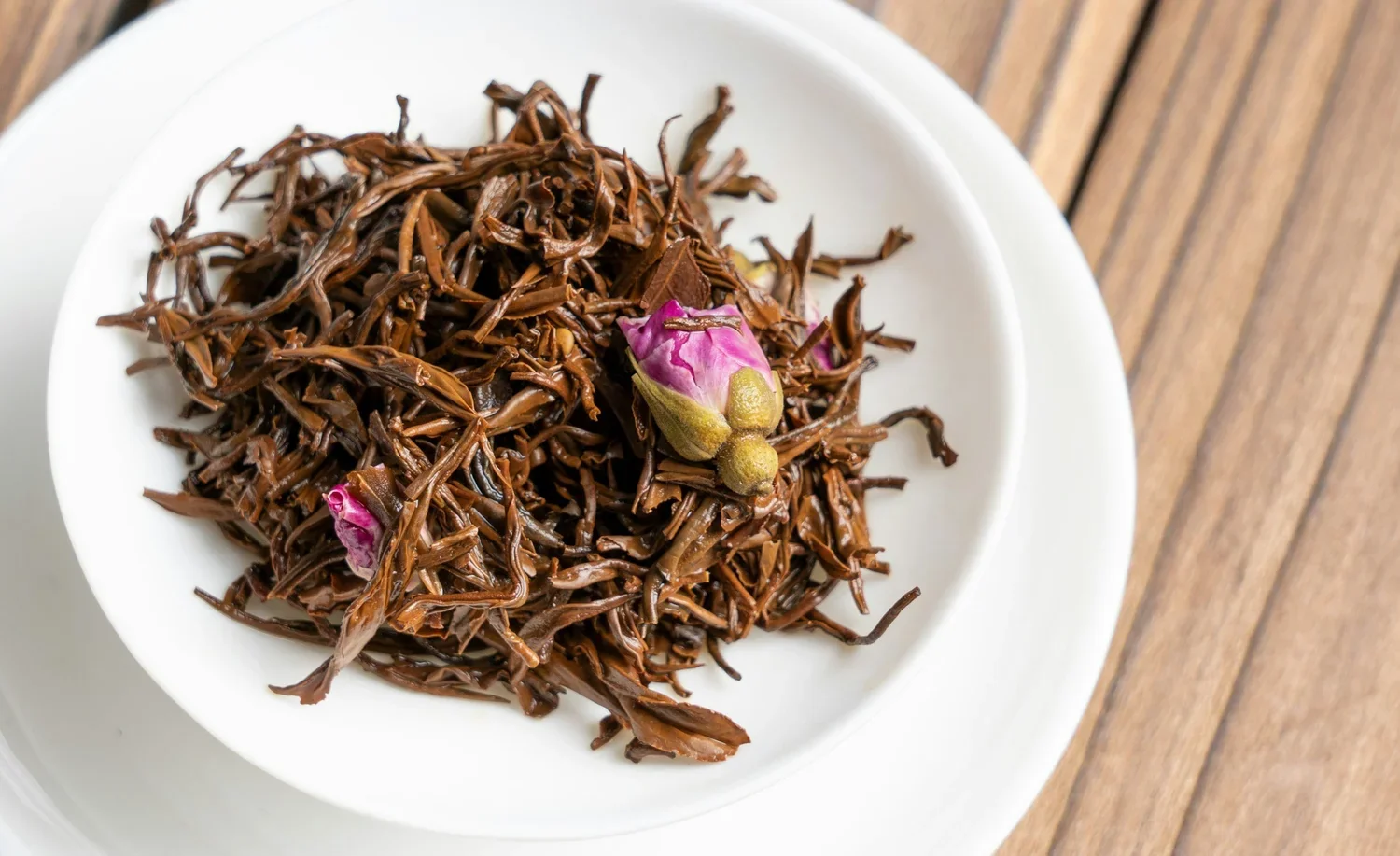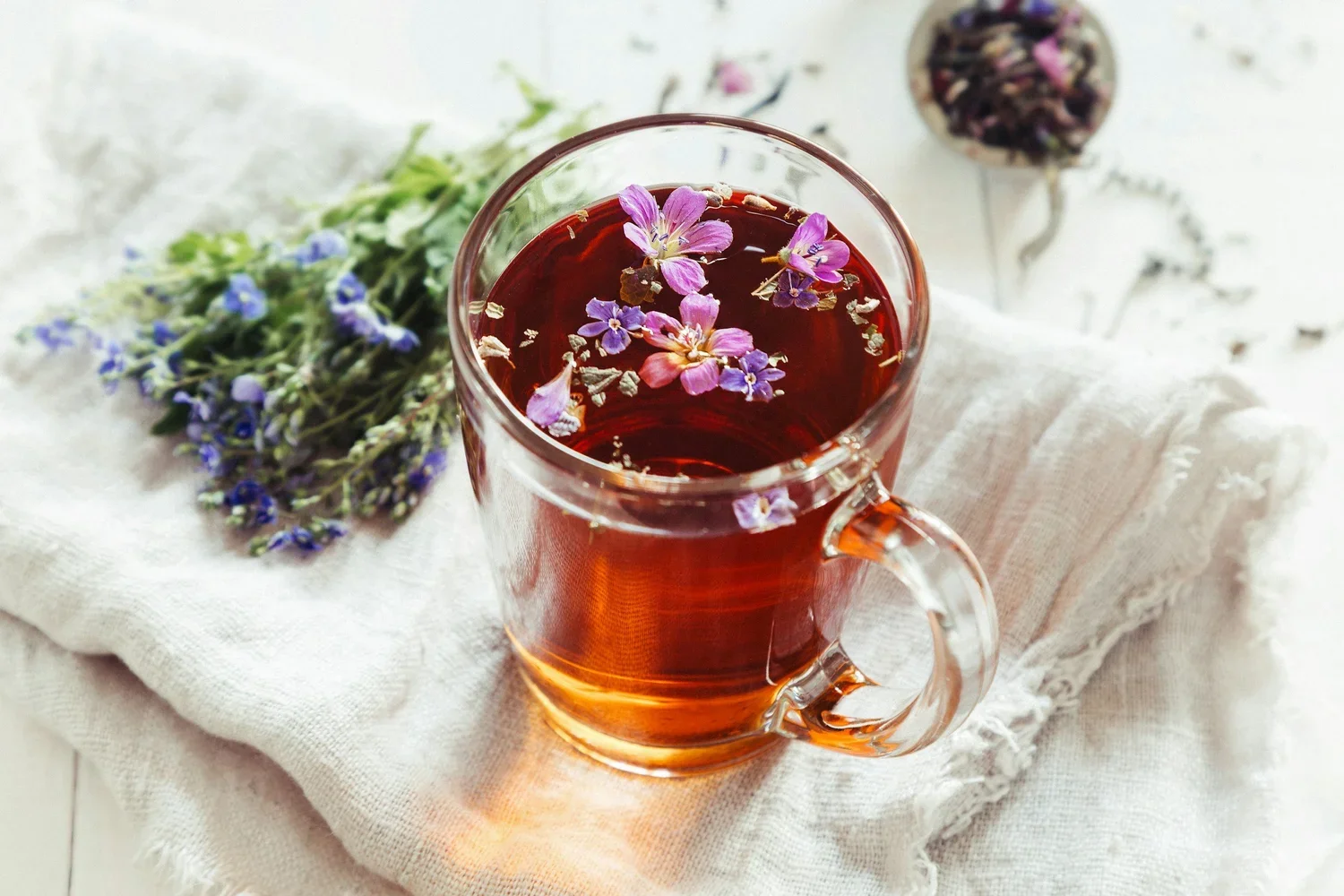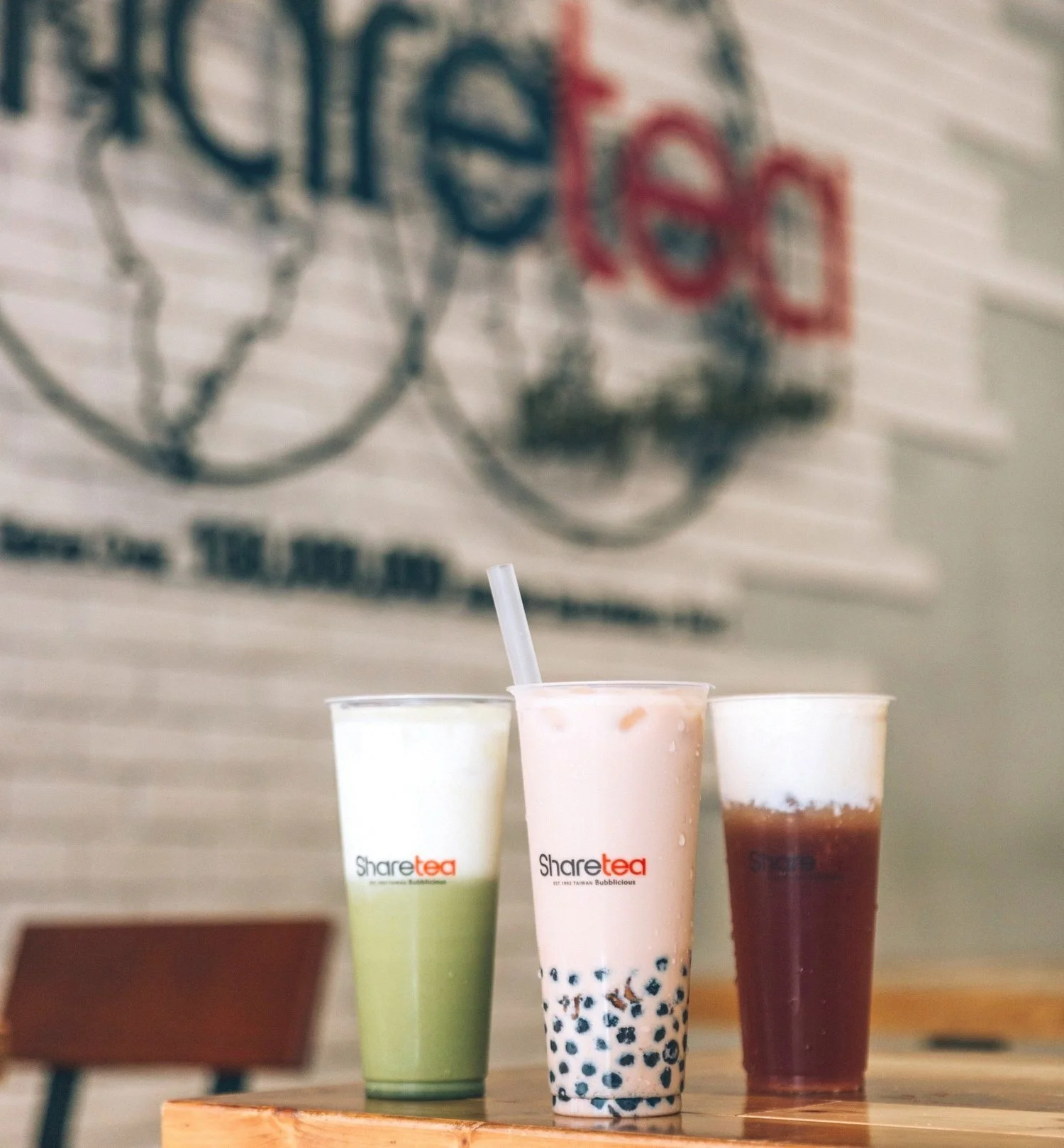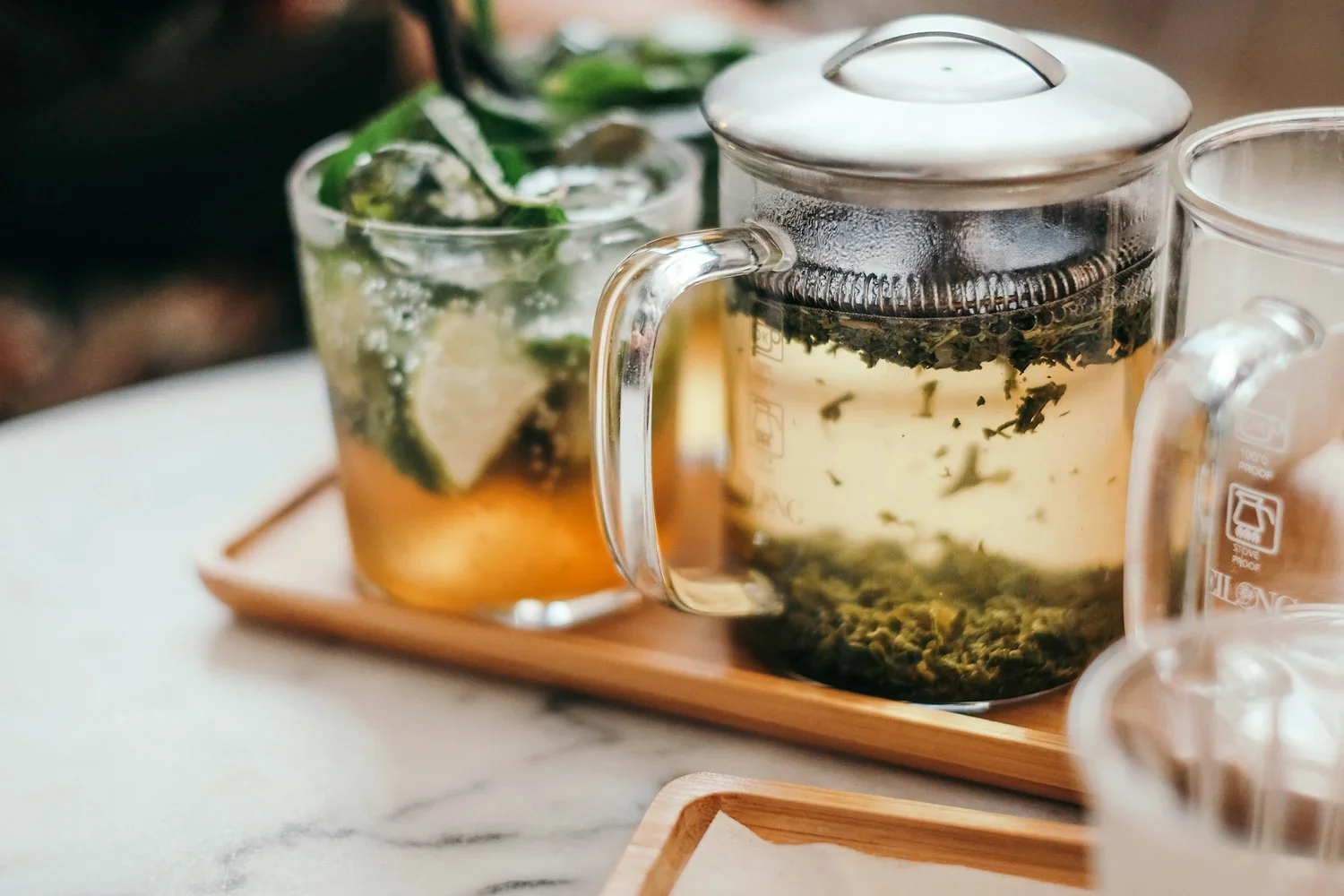Does Black Tea Make You Poop? The Truth Behind Tea for Constipation Relief
Did you know that up to 20% of the population experiences constipation, making it one of the most common digestive complaints worldwide?
It’s a frustrating issue that can leave you feeling bloated, uncomfortable, and sluggish.
When you’re looking for relief, you might find yourself staring into your kitchen cabinet, wondering if that comforting cup of tea holds the answer.
For centuries, people have turned to teas for their soothing properties and health benefits.
The question of whether black tea, in particular, can get things moving is a common one.
It’s a dance of different compounds within those leaves—some that can stimulate, and others that might hinder.
Understanding this balance is key to using tea effectively for digestive health.
So, let's get into it!
We'll explore the science behind how black tea affects your digestive system, whether it’s a friend or foe to your bowel movements, and what other tea options you might consider.
Plus, we'll touch upon how to enjoy your favorite brew without worry.
Ready to uncover the truth about tea and your tummy?
Let’s dive in!
What is the Laxative Effect of Black Tea?
When you're feeling backed up, the idea of a warm, soothing drink that can gently encourage a bowel movement sounds perfect.
Black tea is often at the center of this conversation due to its unique properties.
Its potential laxative effect is primarily linked to its caffeine content, but the story is a little more complex than that.
How Does Black Tea Affect Bowel Movements?
The primary way black tea can stimulate your digestive system is through caffeine.
Caffeine is a well-known stimulant that doesn't just wake up your brain; it also gives your intestines a little nudge.
It increases peristalsis, which are the wave-like muscle contractions in your intestines that move stool along its path.
This is why many people feel the urge to go to the bathroom shortly after their morning coffee or tea.
However, the impact of black tea isn't always straightforward.
It also contains compounds called tannins.
Tannins can bind to proteins and other substances in the gut, which, in some individuals, might slow down digestion.
This dual effect is why some people report that black tea helps them go, while others feel it might contribute to their constipation.
What Are the Laxative Properties of Black Tea?
The main laxative property of black tea comes from its ability to stimulate the colon.
A single cup of black tea contains a moderate amount of caffeine, which can be enough to trigger a bowel movement for those who are sensitive to its effects.
This makes hot or iced black tea a potential remedy for occasional constipation.
Furthermore, the simple act of drinking a warm beverage can have a vasodilating effect, which means it helps widen blood vessels and can relax the muscles in your digestive tract, including the bowels.
This relaxation can make passing stool easier.
So, that comforting warmth you feel from a cup of tea is doing more than just calming your mind.
Can Black Tea Help Relieve Constipation?
Yes, for many people, black tea can help relieve constipation, especially if the constipation is mild.
The combination of hydration and caffeine stimulation often provides enough of a push to get the digestive system moving.
For a consistently excellent brew, consider a high-quality option like ShareTea's classic Brewed Black Tea, which is freshly prepared and offers a pure, robust flavor.
It's important to remember that hydration is a critical factor in preventing and relieving constipation.
While black tea is a fluid, its diuretic properties mean it's wise to also drink plenty of water throughout the day.
If you're looking for other flavorful ways to stay hydrated, exploring different tea-based drinks, like a refreshing Peach Tea with Honey Jelly, can make meeting your fluid goals more enjoyable.
Does Black Tea Cause or Prevent Constipation?
This is the million-dollar question, and the answer is not a simple yes or no.
Black tea’s effect on your digestive system is a classic case of "it depends.
For some, it's a gentle nudge toward regularity; for others, it could be a contributing factor to being blocked up.
Let's break down this paradox.
Can Drinking Black Tea Contribute to Constipation?
While the caffeine in black tea can stimulate the bowels, there are a couple of ways it might backfire and contribute to constipation.
The main culprits are tannins and potential dehydration.
Tannins are compounds found in tea that can have an astringent effect, and in some sensitive individuals, they may bind with stool and make it harder to pass.
This effect varies greatly from person to person.
The more significant factor is dehydration.
Caffeine is a diuretic, meaning it makes you urinate more frequently.
If you drink a lot of black tea without consuming enough water, the net fluid loss can lead to harder, drier stools that are difficult to pass, which can worsen constipation.
Therefore, moderation and balanced fluid intake are key.
How Can Black Tea Help with Constipation Relief?
On the flip side, black tea can be a powerful ally against constipation when used correctly.
Its primary benefit is the caffeine-induced stimulation of the colon muscles, which directly encourages bowel movements.
For a reliable and pleasant experience, knowing how long to steep black tea is crucial to extract the right balance of flavor and caffeine without excessive bitterness.
To maximize its benefits, enjoy black tea in moderation—one to two cups is often enough to feel the stimulating effects without overdoing the caffeine.
Pair it with a healthy diet rich in fiber and ensure you're drinking plenty of other hydrating fluids.
For those who enjoy a richer, creamier beverage, a Classic Pearl Milk Tea made with a black tea base can also be a delightful treat, though it's important to consider your overall diet.
Does Black Tea Contain Caffeine That Affects Digestion?
Absolutely.
The caffeine in black tea is the star player when it comes to digestive effects.
An average 8-ounce cup of black tea contains about 47 milligrams of caffeine.
While this is less than a typical cup of coffee, it's significant enough to stimulate the gastrointestinal tract.
This stimulation can speed up the rate at which waste moves through your intestines, providing relief from occasional constipation.
When comparing different teas, it's helpful to know about their caffeine levels.
If you're curious about whether black or green tea has more caffeine, black tea generally comes out on top, which is why it's often more associated with a noticeable digestive kick.
What Types of Tea are Effective for Constipation Relief?
While black tea is a popular choice, the world of tea offers many other options that can help with digestive regularity.
From spicy chai to potent herbal remedies, different teas work in different ways to support your gut.
Exploring these can help you find the perfect match for your body's needs.
A Comparison of Teas for Digestive Health
| Tea Type | Key Compounds | Primary Action | Best For |
|---|---|---|---|
| Black Tea | Caffeine, Thearubigins | Mild colonic stimulant | Gentle, daily encouragement |
| Green Tea | Caffeine, Catechins | Mild stimulant, gut health | Supporting overall digestion |
| Senna Tea | Sennosides | Strong laxative | Short-term, acute constipation relief |
| Peppermint Tea | Menthol | Muscle relaxant, soothes GI tract | Relieving bloating and cramps |
| Ginger Tea | Gingerol | Stimulates digestion, anti-inflammatory | Soothing nausea and aiding motility |
How Does Chai Tea Make You Poop?
Chai tea is traditionally made with a black tea base, which means it carries the same caffeine benefits for stimulating the bowels.
However, chai's real power comes from its blend of digestive-friendly spices.
Ingredients like ginger, cinnamon, cardamom, and cloves have been used for centuries to support gut health.
Ginger is known to stimulate digestion and reduce inflammation, while cinnamon and cardamom can help with gas and bloating.
This combination of a stimulant tea base and soothing spices makes chai an excellent choice for promoting a healthy, comfortable bowel movement.
If you're a fan of these flavors, a warm Thai Pearl Milk Tea, which has a spiced tea base, offers a delicious and satisfying experience.
Are There Other Herbal Teas That Help with Digestion?
Yes, the world of herbal teas is full of digestive aids.
For powerful, short-term relief from constipation, senna tea is the most well-known natural laxative.
However, it is potent and should only be used occasionally.
For more gentle support, consider these options:
Peppermint Tea: Excellent for relaxing the intestinal muscles and easing discomfort from gas and bloating.
Dandelion Tea: Can act as a mild laxative by stimulating bile production in the liver, which aids digestion.
Licorice Root Tea: Known for its anti-inflammatory properties that can soothe the digestive tract and help ease the passage of stool.
What About Green Tea and Its Effects on Constipation?
Green tea comes from the same plant as black tea but is processed differently, which results in a lower caffeine content and a higher concentration of beneficial compounds called catechins.
Like black tea, the caffeine in green tea can have a mild stimulating effect on the bowels.
While it might not be as potent as black tea, it's an excellent choice for overall digestive health.
Many people find that green tea is gentler on their system.
For a smooth and delicious option, ShareTea's Green Milk Tea is a popular choice.
For those looking for an even bigger antioxidant boost, exploring the benefits of drinking matcha latte can be a great step, as matcha is a concentrated form of green tea.
How Does Tea on Digestion Work?
Understanding how tea interacts with your digestive system is key to using it effectively.
It’s a fascinating process involving everything from the chemical compounds in the tea leaves to the temperature of the water.
This knowledge allows you to tailor your tea habits to best support your body.
What Role Do Tea Leaves Play in Digestion?
Tea leaves from the Camellia sinensis plant—the source of black, green, and oolong tea—are rich in several bioactive compounds.
The most notable are caffeine, which acts as a stimulant to speed up intestinal contractions, and polyphenols like tannins and catechins.
While tannins can be constipating for some, other polyphenols contribute to a healthy gut microbiome by feeding beneficial bacteria.
This balance is why the effect of tea leaves can vary so much from person to person.
For those who are curious about the differences between teas, understanding if oolong tea is black tea can shed light on why their effects might be similar yet distinct, as oolong is partially oxidized, placing it between green and black tea.
Can Different Types of Tea Affect the Digestive System?
Absolutely.
The way tea is processed determines its chemical composition and, therefore, its effect on digestion.
Black Tea: Fully oxidized, giving it a higher caffeine content and a robust flavor.
It’s generally the most stimulating of the true teas.Green Tea: Minimally oxidized, preserving a high level of catechins.
It offers a gentler stimulation and supports overall gut health.Herbal Teas: These are not made from tea leaves and have vastly different effects.
Senna is a powerful laxative, while peppermint is a muscle relaxant.Milk Teas: When you add milk, like in a Taiwan Milk Tea, you are adding fats and sometimes lactose, which can alter the digestive effects.
For some, milk can be soothing, while for others with lactose intolerance, it could cause issues.
How Do Teas for Constipation Relief Work?
Teas for constipation relief work through a few main mechanisms:
Stimulation: Caffeinated teas directly stimulate the muscles of the colon, prompting a bowel movement.
Hydration: All teas contribute to your fluid intake, which is essential for softening stool and preventing constipation.
Relaxation: Warm beverages and certain herbs like peppermint can relax the smooth muscles of the intestines, easing the passage of waste.
Laxative Compounds: Specific herbal teas like senna contain compounds (sennosides) that have a direct and strong laxative effect by irritating the colon lining.
If you are looking to prepare the perfect cup at home, you can find helpful tips on how to make milk tea that you love, ensuring you get both the taste and the digestive benefits you seek.
What Are the Risks of Using Tea as a Constipation Treatment?
While tea can be a gentle and effective remedy for occasional constipation, it's not without potential risks, especially when used improperly or in excess.
Being aware of these downsides helps you make informed choices for your digestive health and avoid turning a helpful habit into a harmful one.
Can Tea Cause Dehydration and Worsen Constipation?
This is one of the most significant risks associated with using caffeinated tea for constipation.
Because caffeine is a diuretic, it increases urine output, which can lead to a net loss of fluid from your body.
If you’re not compensating by drinking enough water and other hydrating fluids, this can easily lead to dehydration.
Dehydration is a primary cause of constipation because it results in dry, hard stools that are difficult to pass.
So, if you're relying heavily on black tea, you could inadvertently make your constipation worse.
What Are the Possible Side Effects of Drinking Too Much Tea?
Drinking excessive amounts of tea can lead to several side effects, particularly due to caffeine and tannins.
These can include:
Digestive Upset: High doses of caffeine can cause stomach pain, heartburn, and nausea.
Anxiety and Restlessness: Too much caffeine can overstimulate the nervous system, leading to jitteriness, anxiety, and difficulty sleeping.
Nutrient Absorption Issues: The tannins in tea can interfere with the absorption of iron from plant-based foods, which is a concern for vegetarians and vegans.
Dependence: Relying on any substance, including laxative teas like senna, can cause your bowels to become dependent, making it difficult to have a bowel movement without them.
It is also important for certain groups to be cautious.
For example, knowing is black tea safe during pregnancy is crucial, as caffeine intake should be limited.
How to Balance Tea Consumption with Digestive Health?
Balancing your tea intake is all about moderation and awareness.
Here are a few tips to enjoy tea without negative consequences:
Limit Caffeinated Tea: Stick to 1-3 cups of caffeinated tea (like black or green tea) per day.
Stay Hydrated: For every cup of caffeinated tea you drink, have a glass of water.
Choose Wisely: If you are prone to constipation, you might alternate between caffeinated teas and non-caffeinated herbal options like peppermint or chamomile.
Listen to Your Body: Pay attention to how your body responds.
If you notice tea is making you feel worse, cut back.Consider a Treat: Sometimes, the goal isn't just function but enjoyment.
A delightful Hokkaido Milk Tea or a fun Oreo Ice Blended with Pearl can be a great way to treat yourself, reminding you that beverages are also about pleasure.
When Should You Seek Other Treatments for Constipation?
While tea can be a helpful home remedy for occasional constipation, it is not a cure-all.
It's important to recognize when the issue might be more serious and requires a different approach or professional medical advice.
Chronic constipation can be a symptom of an underlying condition that tea alone cannot resolve.
What Lifestyle Changes Can Help with Chronic Constipation?
If you struggle with chronic constipation, focusing on foundational lifestyle habits is the most effective long-term strategy.
These changes work together to support a healthy and regular digestive system:
Increase Fiber Intake: Gradually add more fiber-rich foods to your diet, such as fruits, vegetables, whole grains, legumes, and nuts.
Fiber adds bulk to your stool and helps it move through your intestines.Prioritize Hydration: Drink plenty of water throughout the day.
Aim for at least 8 glasses (64 ounces) unless a doctor has advised otherwise.Get Regular Exercise: Physical activity helps stimulate the muscles in your intestines.
Aim for at least 30 minutes of moderate exercise most days of the week.Establish a Routine: Try to go to the bathroom at the same time each day, such as after a meal, to train your body for regular bowel movements.
Don't ignore the urge to go.Manage Stress: High stress levels can negatively impact digestion.
Incorporate stress-reducing activities like yoga, meditation, or spending time in nature.
When to Consult a Doctor About Constipation Issues?
You should consult a healthcare professional if you experience any of the following:
Constipation that lasts for more than three weeks.
Severe pain with bowel movements.
Blood in your stool.
Unexplained weight loss.
A sudden and persistent change in your bowel habits.
Constipation that does not respond to self-care and lifestyle changes.
These could be signs of a more serious underlying issue that requires medical diagnosis and treatment.
Seeking professional advice ensures you get the proper care you need.
What Alternative Remedies for Constipation Exist?
Beyond tea and lifestyle changes, several other natural remedies can provide relief.
These include:
Prune Juice: A classic remedy, prunes are high in fiber and contain sorbitol, a natural laxative.
Magnesium Supplements: Magnesium citrate can help draw water into the intestines, softening stool and making it easier to pass.
Always consult a doctor before starting new supplements.Probiotics: Found in yogurt, kefir, and supplements, probiotics can help balance your gut bacteria and improve digestive health over time.
Flaxseed: Adding ground flaxseed to your food is an easy way to boost your fiber intake.
For those moments when you're looking for a simple and enjoyable option, don't forget the power of a delicious, well-made beverage.
If you're out and about, finding a "boba near me" can lead you to a ShareTea location for a refreshing treat.
Why not make it a fun outing?
It could even be a great idea for a date in Los Angeles or San Francisco!
Frequently Asked Questions (FAQ)
Q1: Does black tea make you poop or constipate you?
A: It can do both.
The caffeine in black tea stimulates the bowels, which can make you poop.
However, its tannins and diuretic effect can lead to dehydration and potentially cause or worsen constipation if you don't drink enough water.Q2: Which tea is best for immediate constipation relief?
A: For strong, immediate relief, senna tea is the most effective natural laxative.
However, it should only be used for short-term, occasional relief.Q3: Is it OK to drink black tea every day if I have constipation?
A: It depends on how your body reacts.
If you find it helps, 1-2 cups a day is generally fine, as long as you are staying well-hydrated with water.
If it makes your symptoms worse, you should reduce your intake.Q4: Does adding milk to black tea affect its laxative properties?
A: The primary laxative effect comes from caffeine, which isn't affected by milk.
However, if you are lactose intolerant, the milk could cause digestive issues like bloating or diarrhea.Q5: Is green tea or black tea better for constipation?
A: Black tea has more caffeine, so it may have a slightly stronger stimulating effect.
However, green tea is also a good option and is often considered gentler on the stomach while still providing a mild stimulant effect.
The Takeaway: A Balanced Approach to Tea and Digestion
So, does black tea make you poop?
The answer is a resounding "sometimes!
It truly comes down to a personal balance.
The caffeine in your favorite cup of black tea can certainly give your digestive system the gentle push it needs, but it's essential to stay mindful of hydration to counteract its diuretic effects.
Remember that tea is just one part of the much larger picture of digestive health.
A diet rich in fiber, plenty of physical activity, and good hydration are the cornerstones of staying regular.
Think of tea as a helpful and enjoyable tool in your wellness toolkit, not a magic bullet.
Whether you prefer the robust flavor of a Classic Black Tea, the earthy notes of a Matcha Fresh Milk, or a fun and fruity creation, there's a world of tea to explore.
Listen to your body, enjoy your sips in moderation, and don't hesitate to seek professional advice if your constipation persists.
Ready to explore the world of high-quality teas?
Whether you're curious about the classic taste of black tea or want to try a refreshing fruit tea, there's a perfect option waiting for you.
Want to find the best boba near me? Visit your nearest ShareTea to experience the vibrant flavors!
Share the moment with ShareTea.
Find a store or explore our full menu today!










